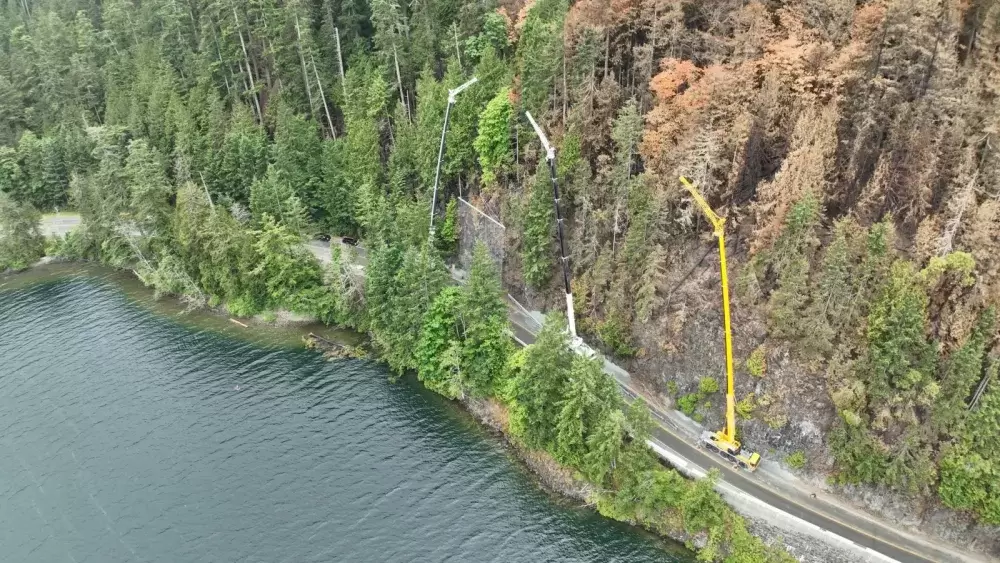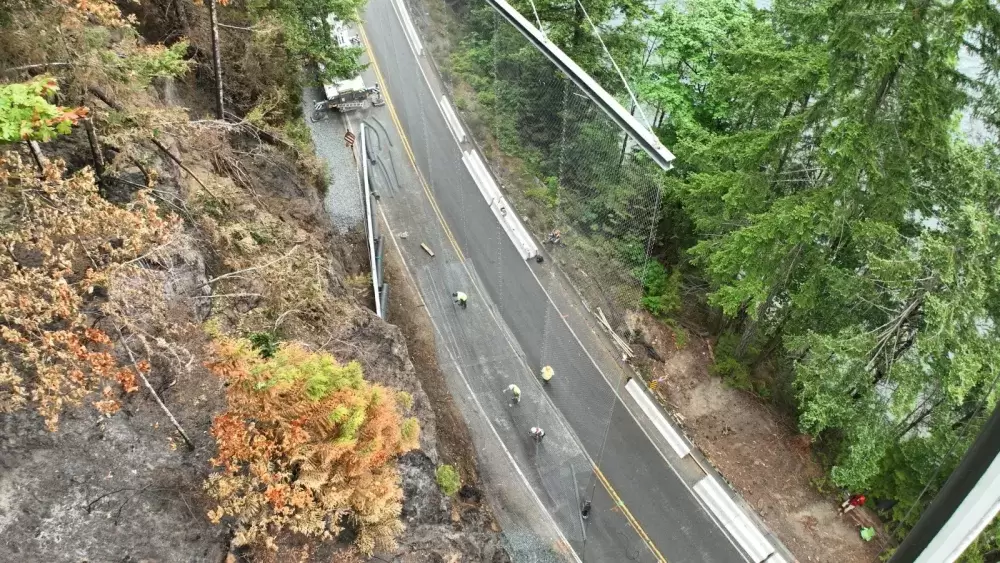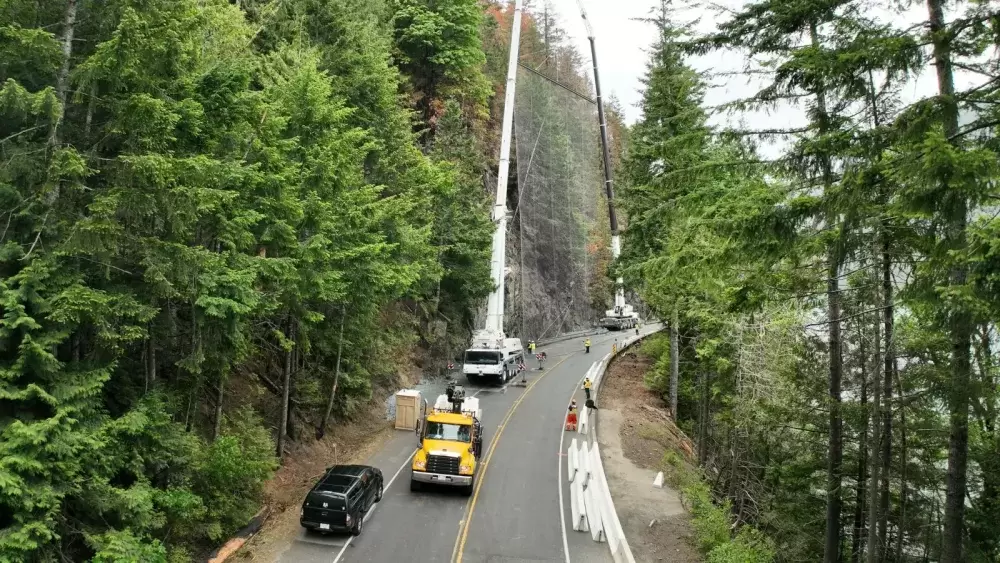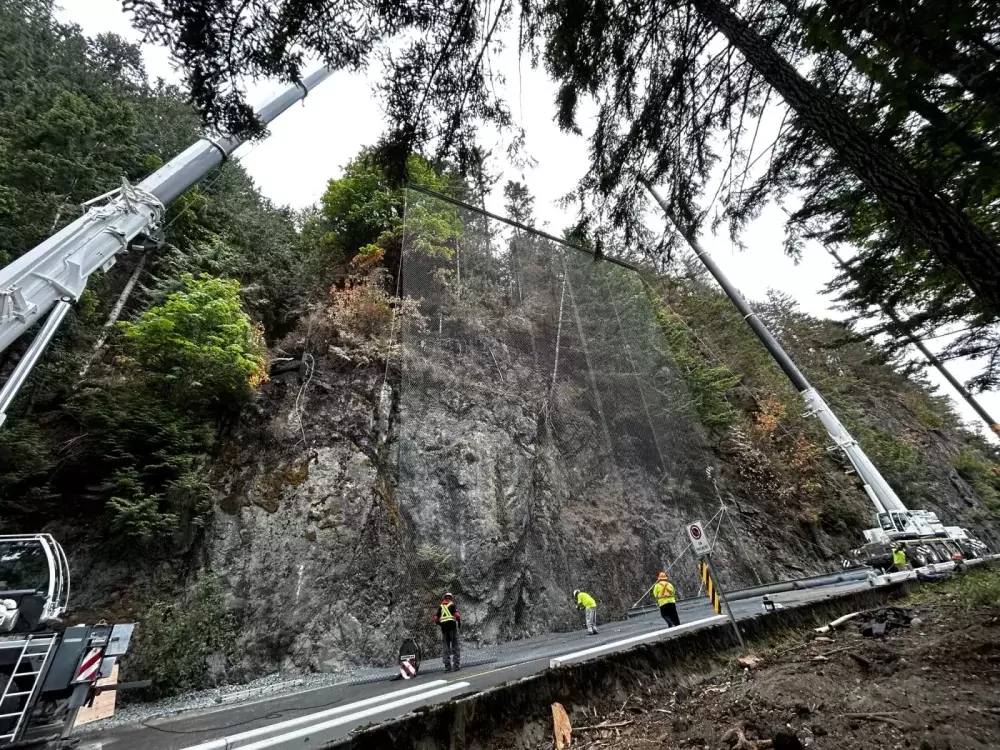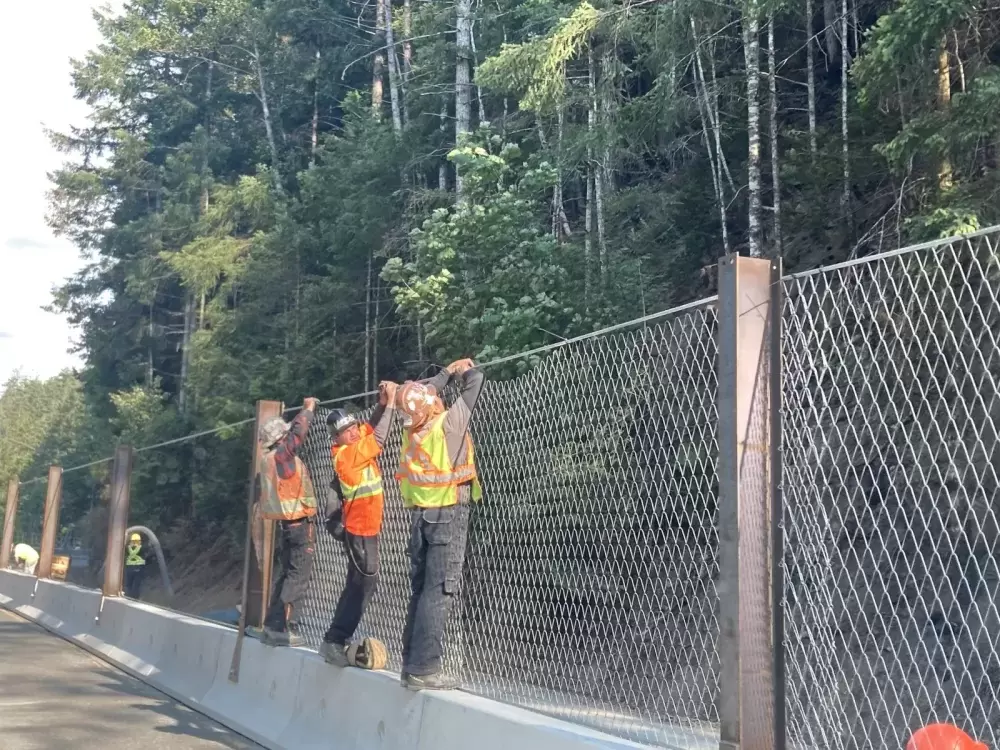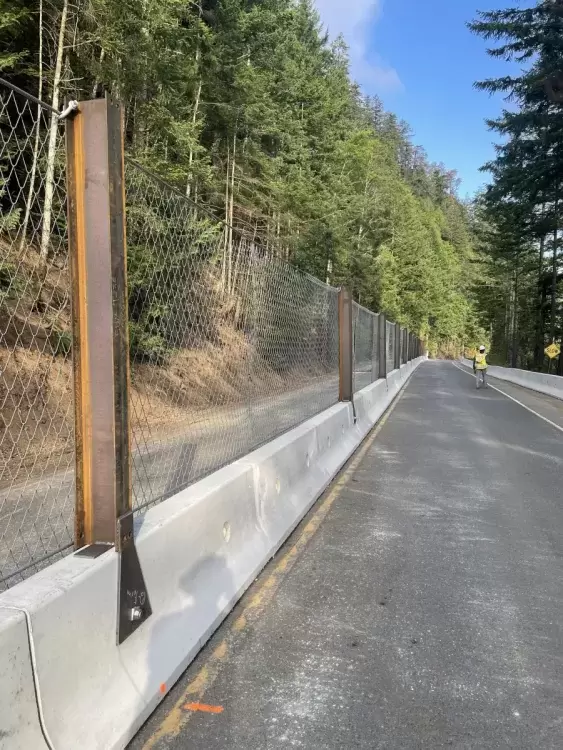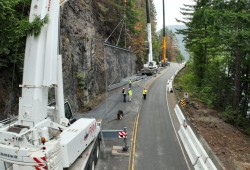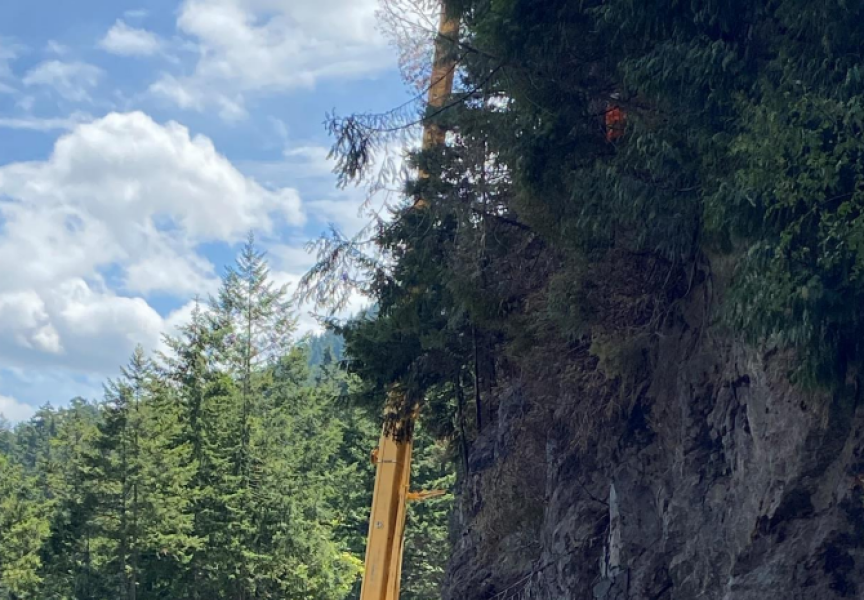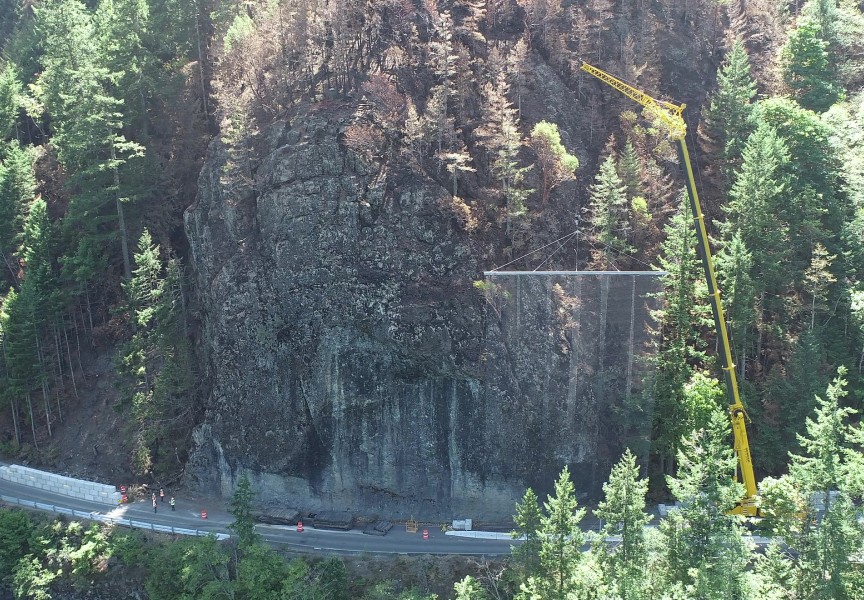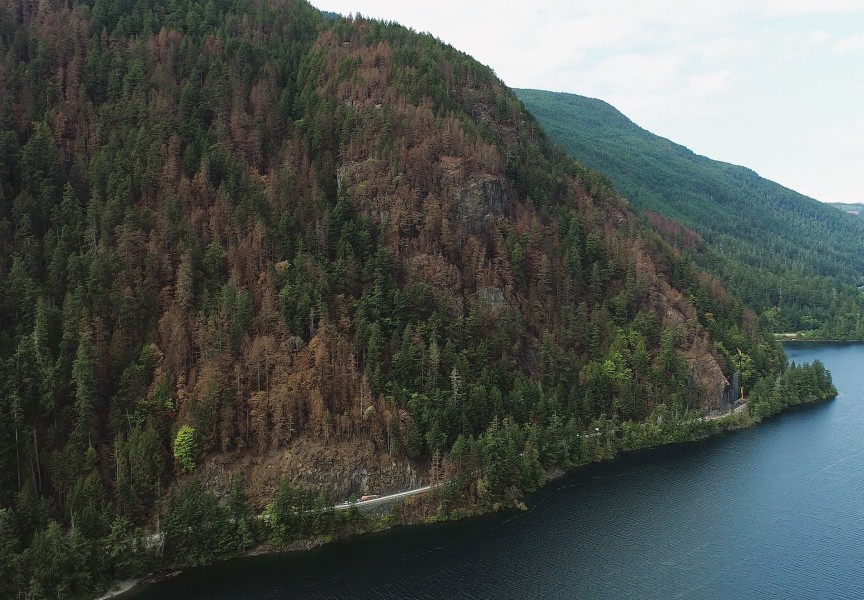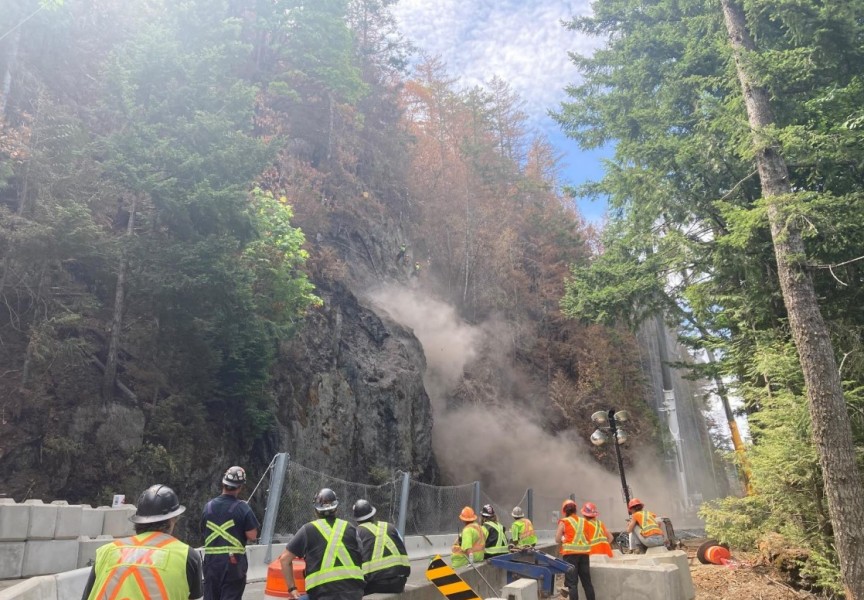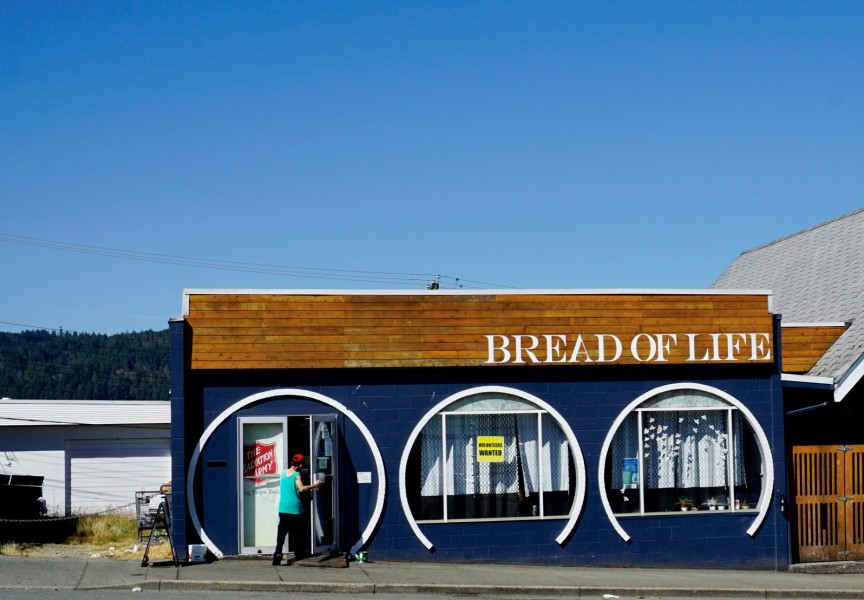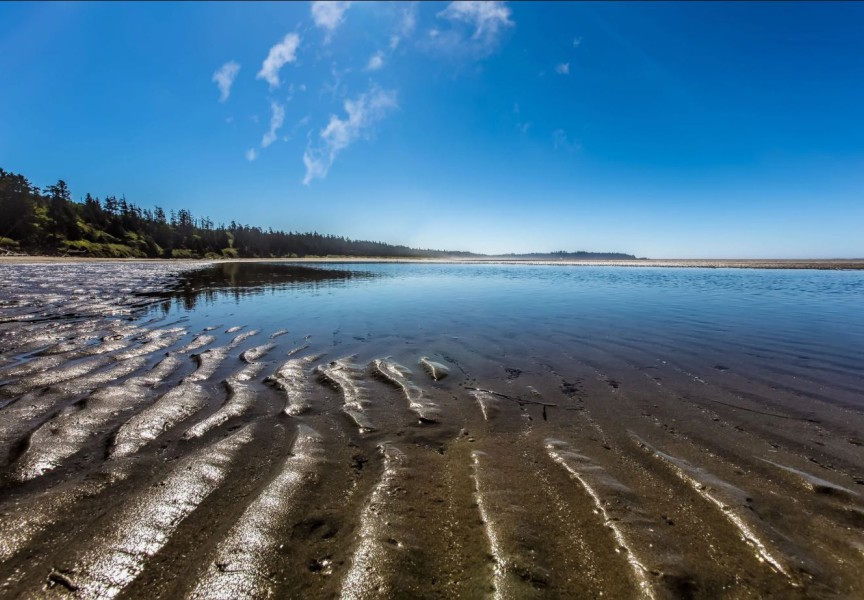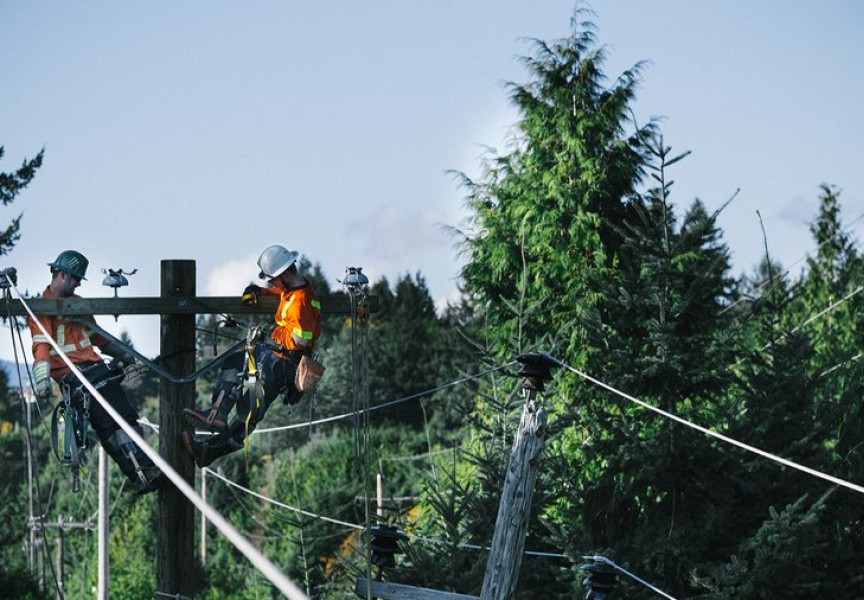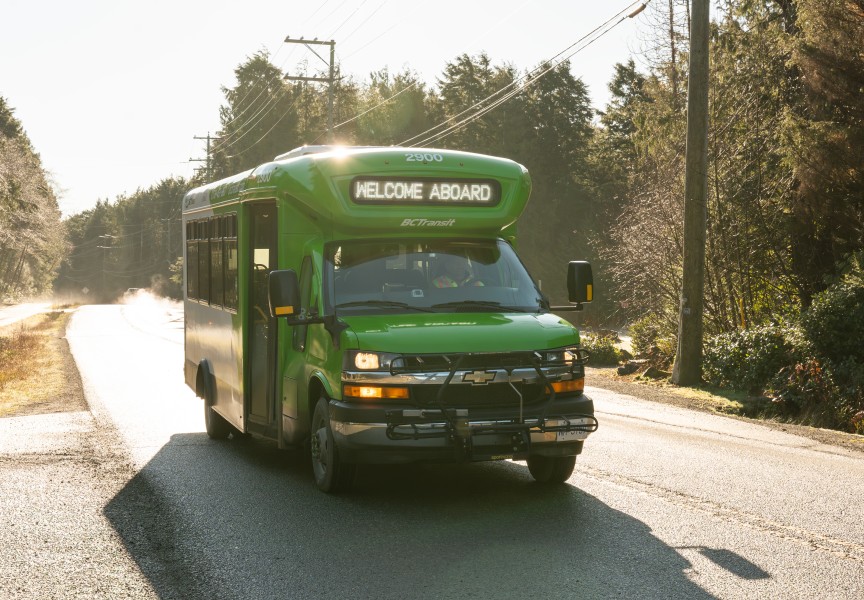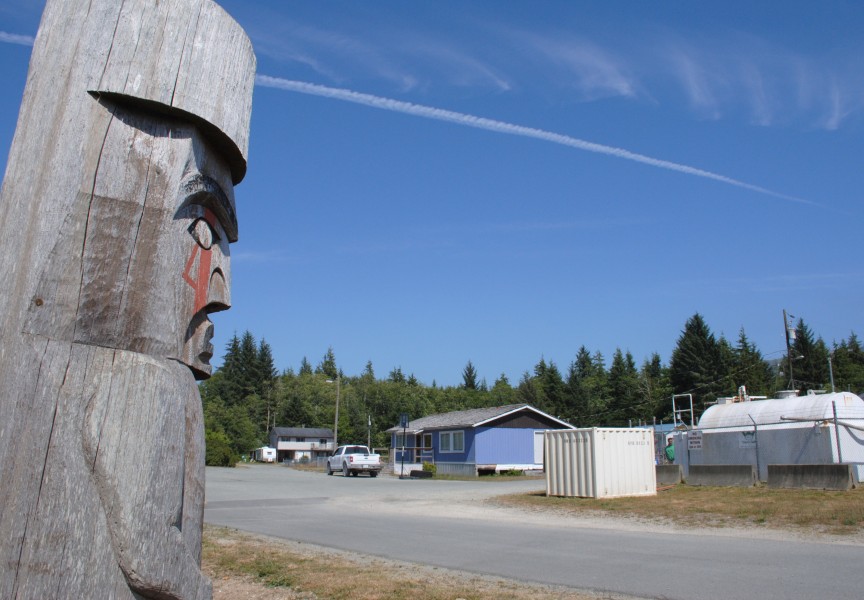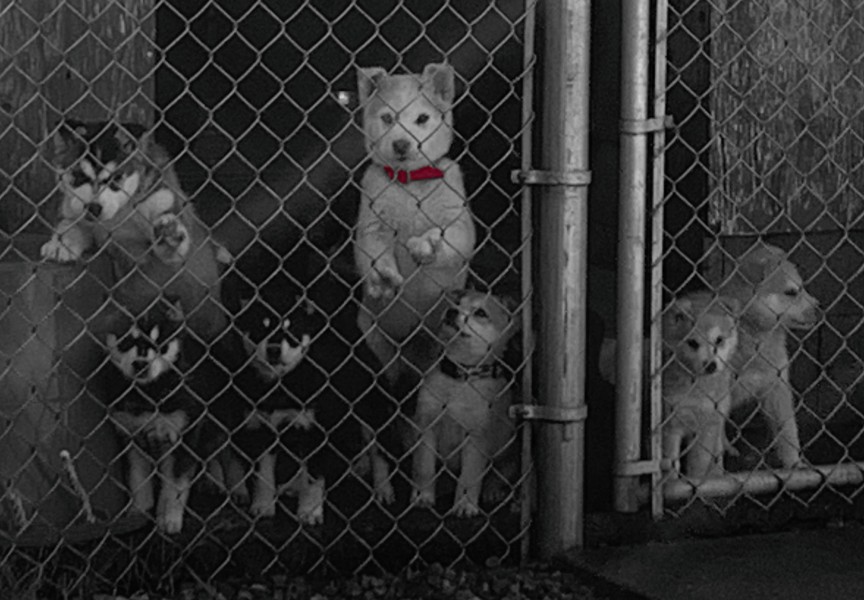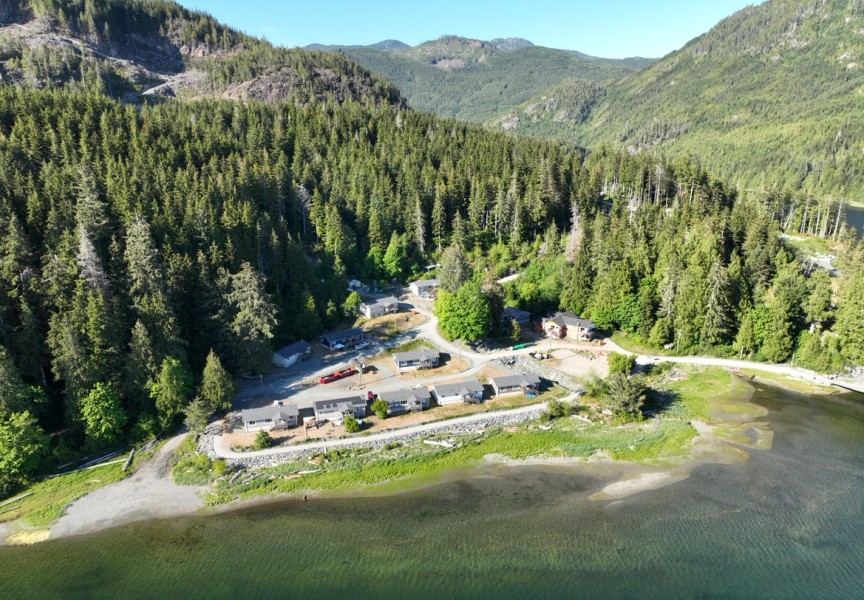The Ministry of Transportation and Infrastructure has called the Horne Lake connector unsafe for regular traffic, but calls for an alternate highway out of Port Alberni are intensifying as the normal route continues to be compromised by wildfire.
Highway 4 was closed for almost three weeks in June as a forest fire burned a mountainside by Cameron Lake, leaving an unstable slope after the route reopened on June 23. To prevent road access from being completely cut off to Port Alberni and Vancouver Island’s west coast communities, a detour route was established on June 7, the day after Highway 4 closed. But the winding route from Port Alberni to Lake Cowichan relied on privately owned and forest service roads that aren’t designed for regular public use, bringing an “essential travel” only direction from the province.
While the highway was still closed, a list of local governments and First Nation’s expressed their collective sense of vulnerability due to the reliance on one highway for goods and road transport.
“We are calling upon both the Government of Canada and the Province of B.C. to make immediate investments in securing a permanent access road into the City of Port Alberni as all our local, regional and First Nations governments and organizations rely on this in all aspects of our life,” states the letter, which was signed by the Tseshaht, Tla-o-qui-aht, Huu-ay-aht, Hesquiaht and Ditidaht First Nations, as well as the Nuu-chah-nulth Tribal Council, District of Ucluelet and Alberni-Clayoquot Regional District.
On July 10 Port Alberni city council passed a motion to deliver a similar message, directing its staff to prepare a letter urging the federal and provincial governments “to take immediate action on securing a permanent second access road.”
“We’re probably more remote than we often are aware of as we go about our daily business, and that was brought into focus as we were faced with an emergency such as that,” said Councillor Dustin Dame, referencing the Cameron Bluffs wildfire. “I think it’s past time to reopen that discussion.”
Mayor Sharie Minions noted that the detour route had serious shortcomings.
“The alternative route was not ideal. A lot of people felt uncomfortable driving it, there were several accidents,” she said. “That road was just not a road that I personally felt comfortable driving.”
Minions wants to start a working group with other communities to explore the possibility of a better alternative route.
“We know that there are potentially better access roads and alternative routes that could be activated in the short term,” she said. “I’ve already had conversations with our MLA about that, and what needs to get done to those roads in order to make them usable.”
The need for a safe alternative road became a common topic of conversation over 20 years ago when railway service to Port Alberni ceased, increasing the use of heavy transport trucks on the Highway 4 mountain pass by Cameron Lake. The Horne Lake connector became the top option up for consideration, a series of forestry roads that branch off the highway east of Port Alberni, leading to a route around Horne Lake that meets Highway 19 near Qualicum.
In 2005 B.C.’s Ministry of Transportation commissioned the Horne Lake Connector Study to determine the viability of upgrading the route for everyday public and commercial use. Extending for less than 30 kilometres east of Port Alberni and around Horne Lake, part of the alternative road would be paved, calculated the study.
“Total costs of the connector are estimated to range from $38.4 million to $45.5 million and are based on a rural two-lane highway standard,” stated the 2005 document.
But as Highway 4 was closed due to the Cameron Bluffs wildfire, the Ministry of Transportation said that the Horne Lake Connector is unsafe for normal traffic due to narrow, winding sections with parts that are steeper than the detour that was in place, according to correspondence with Ha-Shilth-Sa. The connector is currently owned by Mosaic Forests, which allowed some travel for emergency response efforts, stated the ministry.
Bringing Highway 4 back to safe conditions has proved more challenging that anticipated. Before the road was permanently reopened on June 24, the province anticipated that both lanes could be running by mid July. But since then it’s become clear alternating single-lane traffic will continue until at least mid August, with highway closures weekdays from 9 a.m. to 5 p.m. to allow crews to remove loose rock and trees that were damage by the wildfire. These daily closures start Monday, Aug. 17.
“This work is critical in ensuring the long-term safety of the corridor,” stated the Ministry of Transportation in a press release. “A geotechnical assessment of the bluff has determined rock scaling is required before the highway can be safely reopened to two-way traffic at Cameron Lake Bluffs.”
The road will reopen 11:30 a.m. to 1:30 p.m. each weekday to allow waiting traffic to flush through, and no closures are scheduled for weekends.
With the region’s tourism in full swing, the toll of the continued highway delays was acknowledged by Rob Flemming, minister of Transportation and Infrastructure.
“We know that this has been a challenging time for businesses and the tourism sector on the west coast of Vancouver Island, and we thank people for their patience as we work as quickly as possible to get this main corridor safely operating at full capacity again,” he said.

